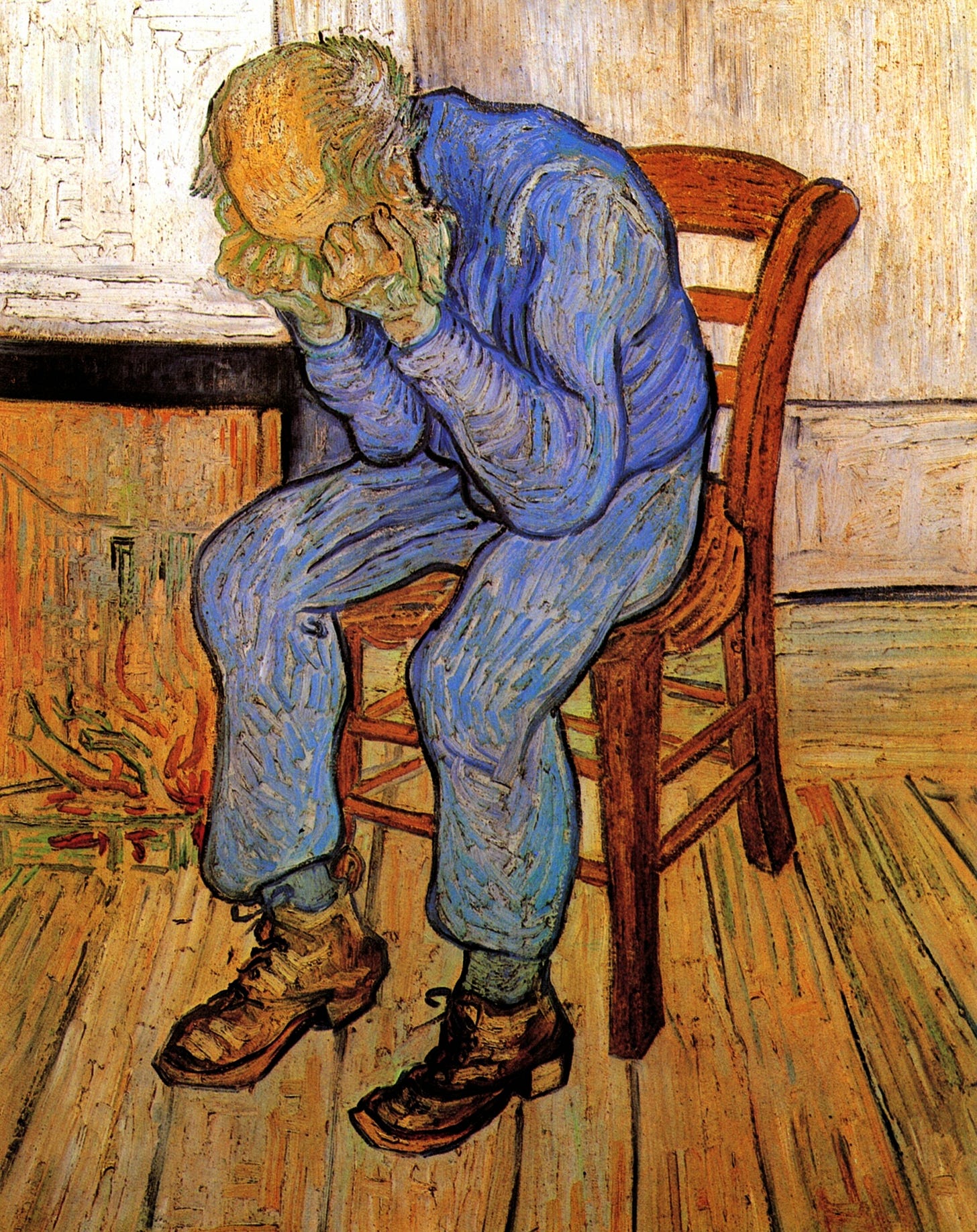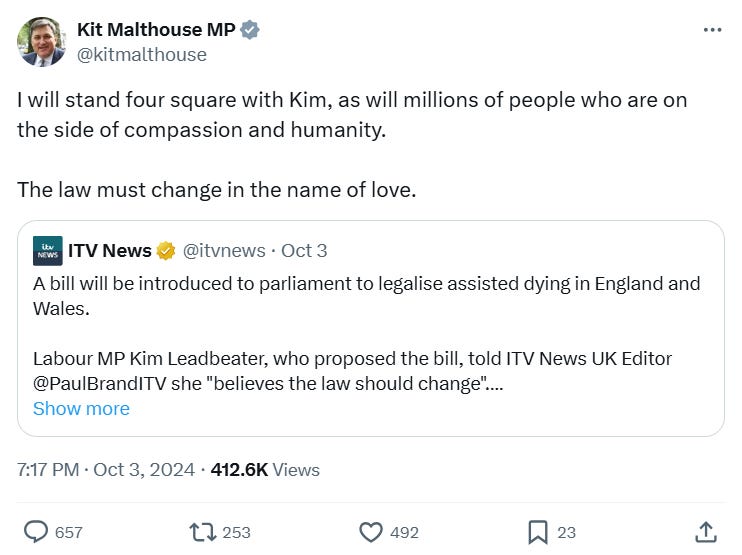
Tory MP Kit Malthouse drew some flack from social conservatives last week. He posted what some regarded as a rather sloppy and sentimental tweet in support of Labour MP Kim Leadbeater’s bill to legalise assisted suicide:
Leadbeater’s bill has put assisted suicide back in the UK headlines. We now have to call it “assisted dying” though. (The last result for “assisted suicide” on the BBC website, if you search for it, was 2019—the Before Times). These things are always a war of words. Pro-choice, equal marriage, gender-affirming care—all terms which could have been cooked up by the nefarious dissemblers of That Hideous Strength’s NICE. Linguistic sleights of hand designed to predispose you away from reality.
The Prime Minister has promised a free vote on the issue, possibly before Christmas, allowing MPs to vote with their conscience. This was not mentioned in Labour’s manifesto at the general election we held just three months ago, but Sir Keir made a promise about it to a celebrity, which is apparently much the same thing.
Malthouse rankled conservatives (though probably not many Conservatives) by talking about “love”. Such a thing seems unpolitical. Better to talk about Reason and Evidence, say those opposed to euthanasia. And, make no mistake, Reason and Evidence certainly should lead any sensible person to recoil at the very prospect of legalising the practice. Reason will tell you that a society cannot coherently endorse both state-sponsored suicide and suicide prevention charities; Evidence will tell you that we will end up with ever-widening euthanasia criteria just the same as Canada and end up killing the depressed and the homeless.
Love, then, can seem like the problem with our creep toward euthanasia. If only we could get Love, the great muddier of the waters, out of politics we could make some sensible legislation.
However, despite being a cantankerous reactionary by nature, I will go out to bat for Malthouse here, if not for his conclusions. But he is right on this much: law and love belong together.
Few people have expressed this better than W.H. Auden in his poem “Law, Like Love”. The poem is animated by one question: what is law? The first stanza:
Law, say the gardeners, is the sun,
Law is the one
All gardeners obey
To-morrow, yesterday, to-day.
This describes what we would usually call “the law of nature”. But there are different kinds of law, of course. The poem works through a number of these—customary, divine, civil etc. He soon seems to despair of any unifying answer to the question, teetering on the edge of anarchy in the absence of an answer.
Then, he advances, haltingly, a definition:
Although I can at least confine
Your vanity and mine
To stating timidly
A timid similarity,
We shall boast anyway:
Like love I say.Like love we don't know where or why,
Like love we can't compel or fly,
Like love we often weep,
Like love we seldom keep.
Keep reading with a 7-day free trial
Subscribe to The New Albion to keep reading this post and get 7 days of free access to the full post archives.





